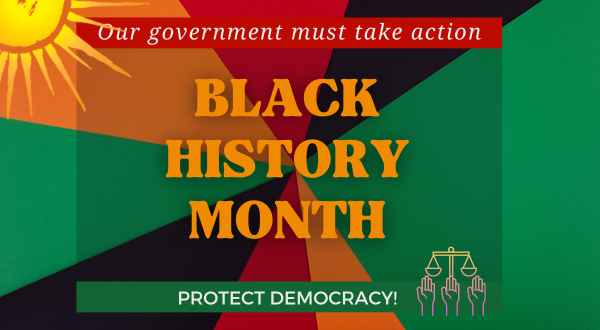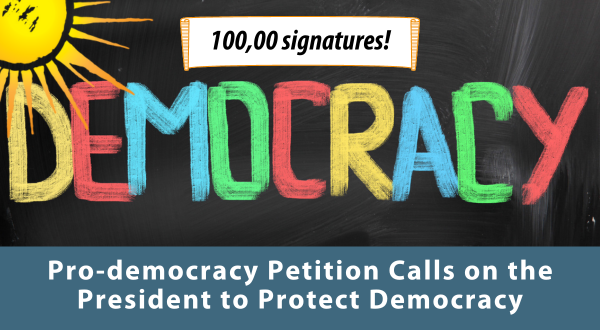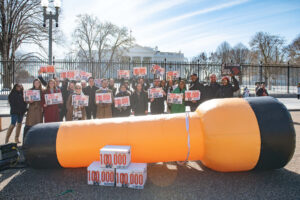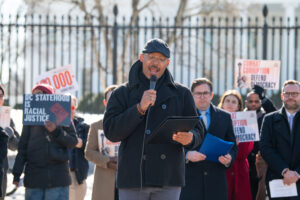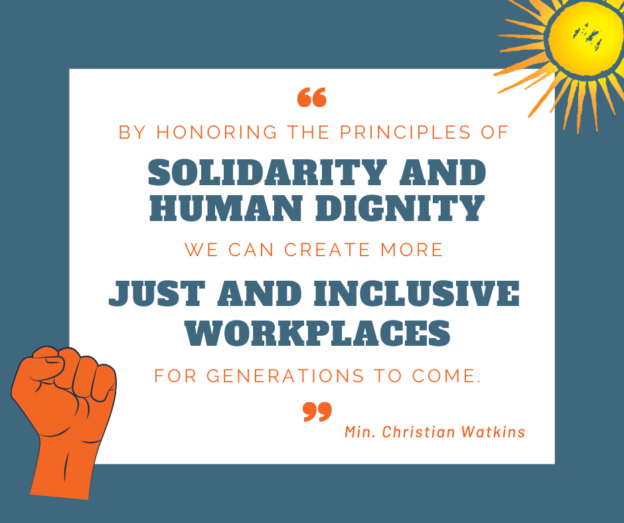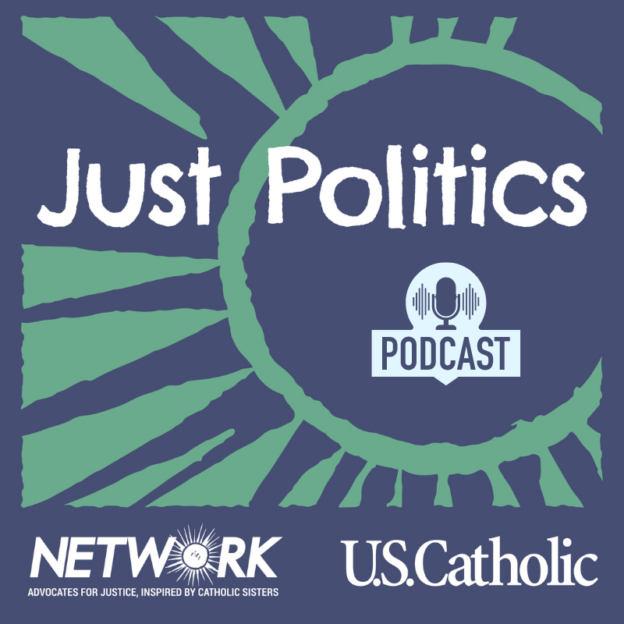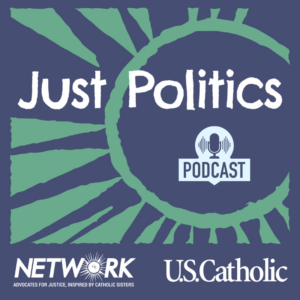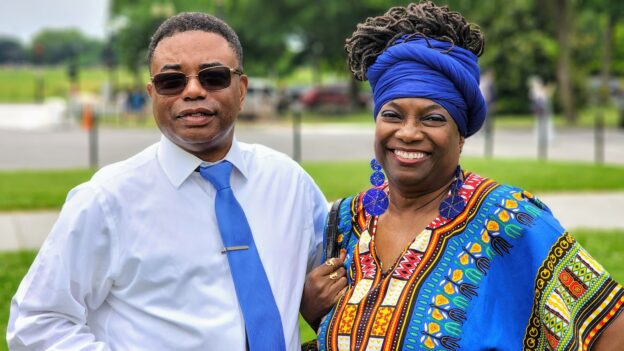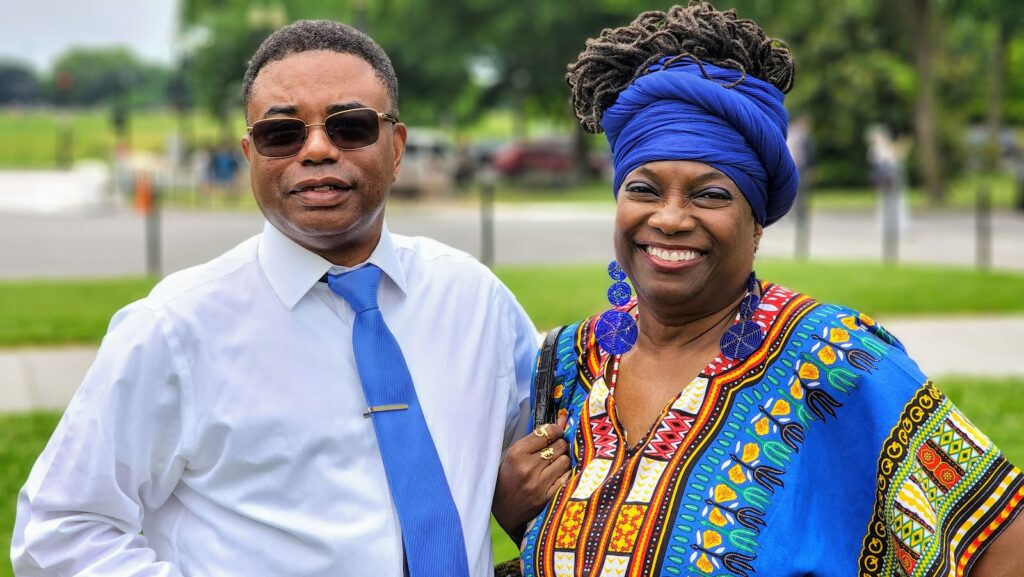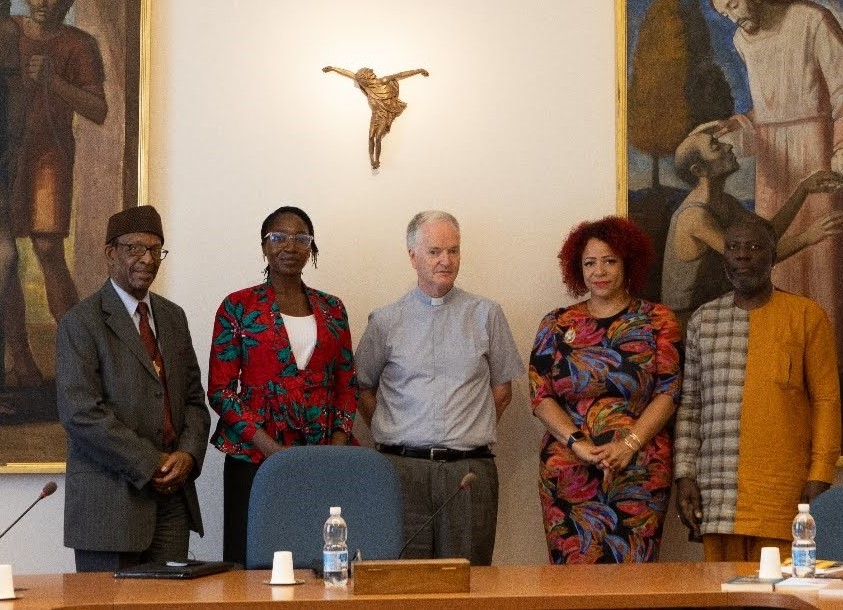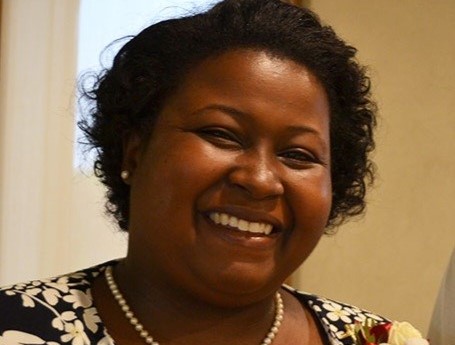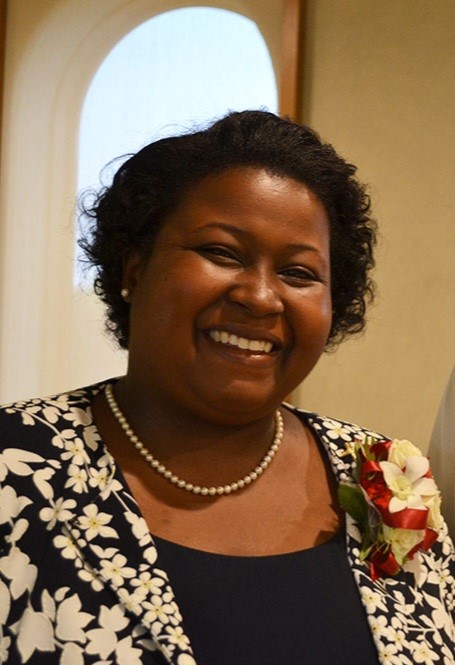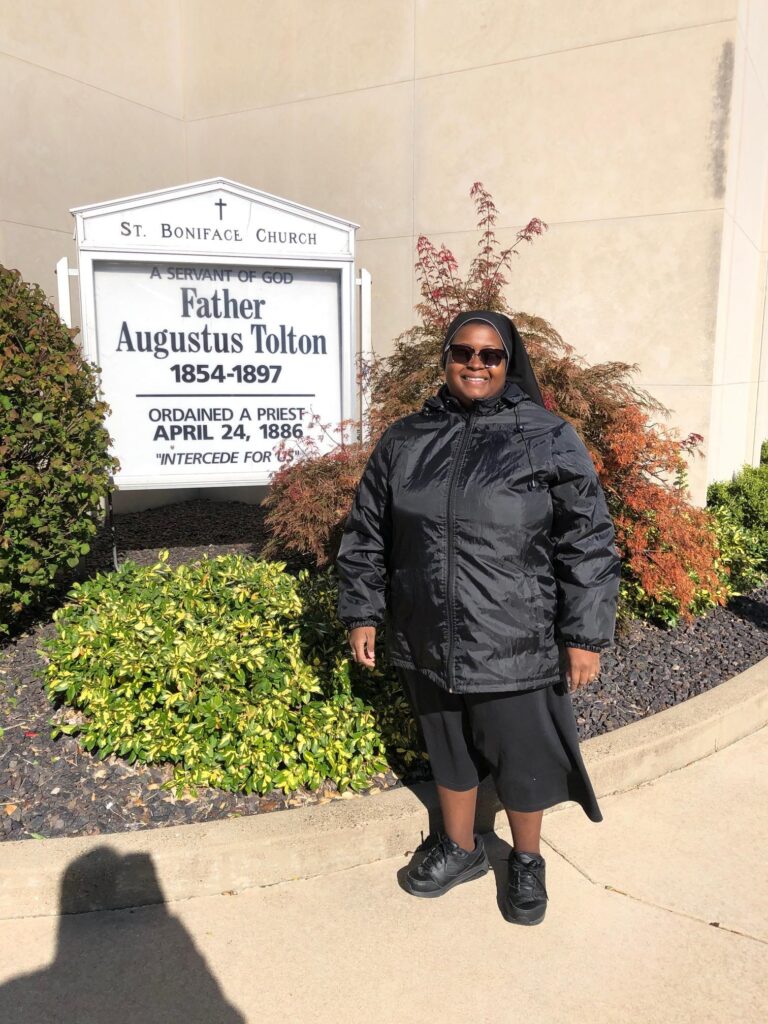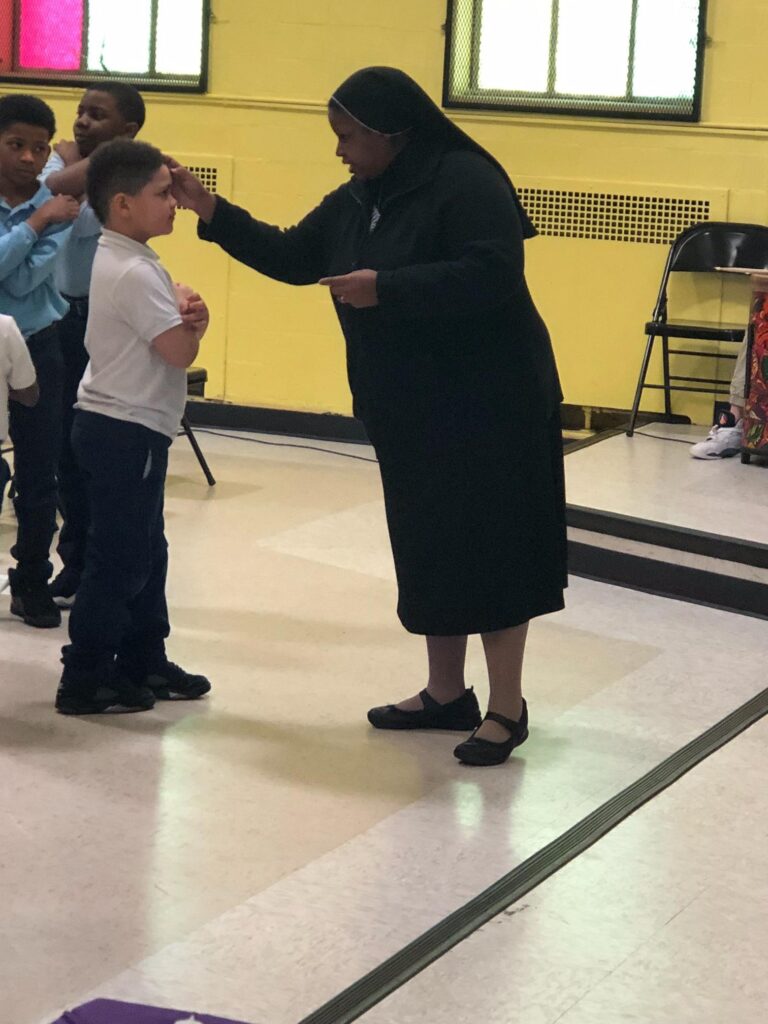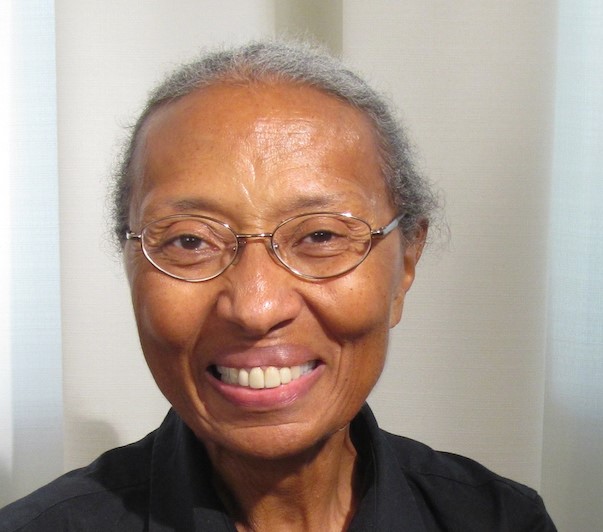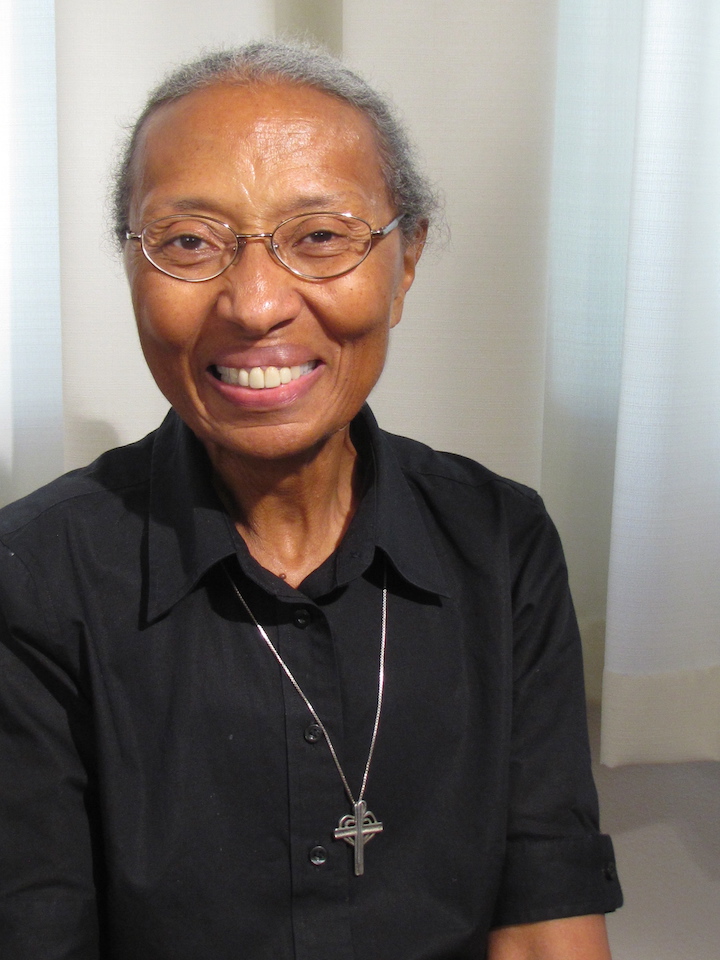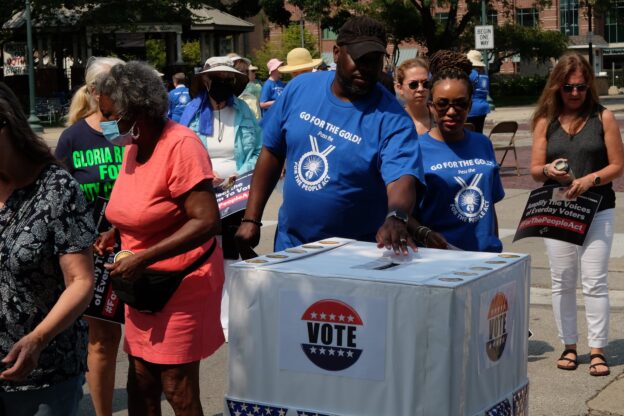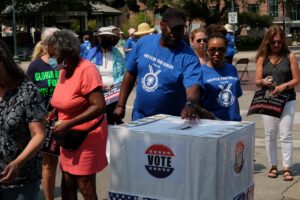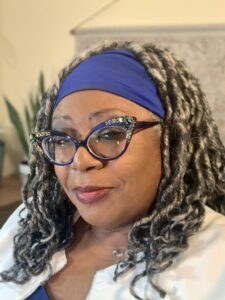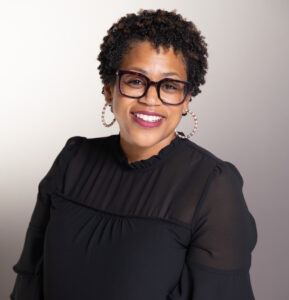
This Black History Month, NETWORK calls for democracy protection in the U.S.
Min. Christian Watkins, Government Relations Advocate
February 27, 2024
Black History Month is a time for our country to celebrate the legacy of African American accomplishments, our successes amid struggles, and influences on U.S. politics, economy, and culture. Yet, in times like these, there are so many who want to deny Black history and thwart any further progress–especially participating in democracy through voting. The Supreme Court decision in Shelby County v. Holder, 570 U.S. 529 (2013) effectively gutted the heart of the Voting Rights Act of 1965 by declaring the preclearance requirement unconstitutional. Since then, there has been alarming erosion, challenge, and suppression of voting rights in state legislatures and federal circuit courts. This Shelby decision opened the floodgates for states to enact restrictive voting laws that disproportionately impact minoritized and marginalized communities. Some states have implemented voter ID laws, purged voter rolls, closed polling places, restricted early voting, and enacted other measures that intentionally create unnecessary barriers for eligible citizens, particularly Black and Latinx people, the elderly, and people with health impairments, to exercise their sacred right to vote. This Black History Month NETWORK once again calls for democracy protection in the U.S.
The Brennan Center for Justice reports in their “Voting Laws Roundup: 2023 in Review” that between January 1 and December 31, 2023, at least 14 states enacted 17 restrictive voting laws, all of which will be in effect for the 2024 general election . Voters in these states now face additional hurdles to reach the ballot box. Most of the restrictions limit mail voting, such as requiring additional information on a mail ballot application, shortening the window to request a mail ballot, or banning drop boxes. At least 6 states enacted election interference laws , with at least 6 laws in effect for the 2024 elections . These laws open the door to partisan interference in elections, or they threaten the people and processes that make elections work. In many cases, these efforts are justified as measures to combat baseless claims of widespread voter fraud and a stolen 2020 election. Many of them create criminal penalties for election workers for minor mistakes such as not allowing a poll watcher to stand close enough to voters. And as of December 31, 2023, 25 states had a bill to be acted on in 2024 that will make it harder to vote.
The impact of these actions will be devastating in the upcoming elections, as they effectively disenfranchise countless eligible voters and undermine the fundamental principles of democracy. The erosion of voting rights perpetuates systemic inequality and threatens the core of American democracy. Public trust in the electoral process and the legitimacy of duly elected representatives will continue to degrade. Without robust protections for voting rights, the voices of marginalized communities are silenced, and their ability to participate meaningfully in the democratic process is hindered.
During this year’s 38th Annual MLK, Jr. Commemorative Worship Service in Atlanta, Georgia, Reverend Sen. Raphael Warnock said, “[we have come to] a moment where there are forces at work in our country desperately trying to tear us apart. And they’re trying to tear us apart because people with no vision traffic in division. They do not know how to lead us, so they are trying to divide us for their own short-term political purposes. We’ve seen this before; we’re not going for it.” History reflects the long struggles for Black men and all women’s voting rights, poll taxes levied against African American voters, elimination of rights for the incarcerated, and the list goes on. These efforts meant to divide us, yet we are still in the fight of restoring and strengthening voting rights. Now is the time to be bold.. Reinhold Neibuhr, the American reformed theologian and ethicist, said that our “capacity for justice makes democracy possible, but [our] inclination to injustice makes democracy necessary.” Now is the time for robust federal legislation. Now is the time to safeguard and strengthen U.S. voting rights by passage of critical voting rights legislation, specifically the John Lewis Voting Rights Advancement Act and the Freedom to Vote Act.
Rev. Warnock believes that “the vote is a kind of prayer for the world we desire for ourselves and our children, and our prayers are stronger when we pray together. So, we must pray together. We must stand together.” We must stand together and call for the passage of the critical reformative federal voting rights legislation. The passage of voting rights legislation is essential to preserve the sacred right to vote for all eligible citizens and to uphold the principles of fairness, equality, and justice upon which the United States was founded. The right to vote is the cornerstone of democracy, and it is imperative that every eligible citizen has unfettered access to the ballot box.
Inaction on federal voting rights legislation would signal a dangerous complacency in the face of a direct assault on the democratic values that define the United States. The consequences of continued disenfranchisement are dire, with far-reaching implications for the legitimacy of American elections and the ability of citizens to hold their government accountable. The time to act is now, and Congress must rise to the challenge of protecting and preserving the sacred right to vote for all eligible citizens.
The passage of federal voting rights legislation is not a partisan issue; it is a matter of upholding the fundamental principles of democracy and safeguarding the rights of all citizens. By enacting comprehensive voting rights laws like the John Lewis Voting Rights Act and the Freedom to Vote Act, Congress can reaffirm its Black History Month commitment that lifts every voice like a song that can heard at the ballot box to be valued and counted. The protection of voting rights is essential to the preservation of a fair, inclusive, and representative democracy. It is imperative that federal voting rights legislation is enacted to address the widespread disenfranchisement that has continues to plague communities of history-makers who undergird United States’ culture and society.
Yet, while the 118th Congress seems incapable of acting decisively to restore and strengthen the protections of the Voting Rights Act, President Biden’s Administration must do all they can to ensure that all Americans can exercise their right to vote free from discriminatory barriers. In December of 2023, under the leadership of the Leadership Conference on Civil and Human Rights (LCCHR), NETWORK Lobby along with 100 other diverse organizations and leaders sent this letter to President Biden and Federal Agencies, emphasizing the urgency of the Administration’s departments and agencies to fully implement President Biden’s 2021 Executive Order Promoting Access to Voting. The LCCHR also has published this 2023 federal agency progress report that outlines how in fact the Administration can better accomplish this task of protecting voting rights to strengthen our nation’s Democracy.
The Government Relations team continues to work behind the scenes in coalition with other advocacy organizations, Congressional offices, and Administration staff to make progress. We also are also hopeful that nurturing relationships will ensure future passage of democracy and voter protection legislation in the 119th Congress.
[1] Voting Laws Roundup: 2023 in Review | Brennan Center for Justice
Resources
- The Theology of Voting: The Right to Vote is A Sacred Right – NETWORK Lobby
- Christians Should Honor Dr. King With United Witness on Voting Rights – NETWORK Lobby
- John Lewis Voting Rights Advancement Act – NETWORK Lobby
- Black History Month: Honoring those who Resisted Voter Suppression – NETWORK Lobby
- Witness of John Lewis Rallies People of Faith on Voting Rights – NETWORK Lobby
- NETWORK and 3,500 Catholic Sisters Call for Immediate Action on Voting Rights – NETWORK Lobby
AR H.B. 1411, FL S.B. 7050, ID H.B. 124, ID H.B. 340, IN H.B. 1334, KS S.B. 106, MS H.B. 1310, MS S.B. 2358, NC S.B. 747, ND H.B. 1431, NE L.B. 514, NM S.B. 180, SD H.B. 1165, TX S.B. 924, UT S.B. 17, WY H.B. 279, WY S.F. 153. Legislation is categorized as restrictive if it contains one or more provisions that would make it harder for eligible Americans to register, stay on the voter rolls, or vote as compared to existing state law.
MS S.B. 2358 has been partially blocked by a federal court as it applies to voters with disabilities, but the state has appealed. Portions of FL S.B. 7050 were temporarily blocked by a federal court, but some restrictive provisions remain in effect. The state has appealed.
AR H.B. 1411, AR S.B. 272, FL S.B. 4-B, GA S.B. 222, NC S.B. 749, SD H.B. 1165, TX S.B. 1933. Legislation is categorized as interference if it either threatens the people and processes that make elections work or increases opportunities for partisan interference in election results or administration.
NC S.B. 749 has been temporarily blocked by a state court, but the state has appealed.







